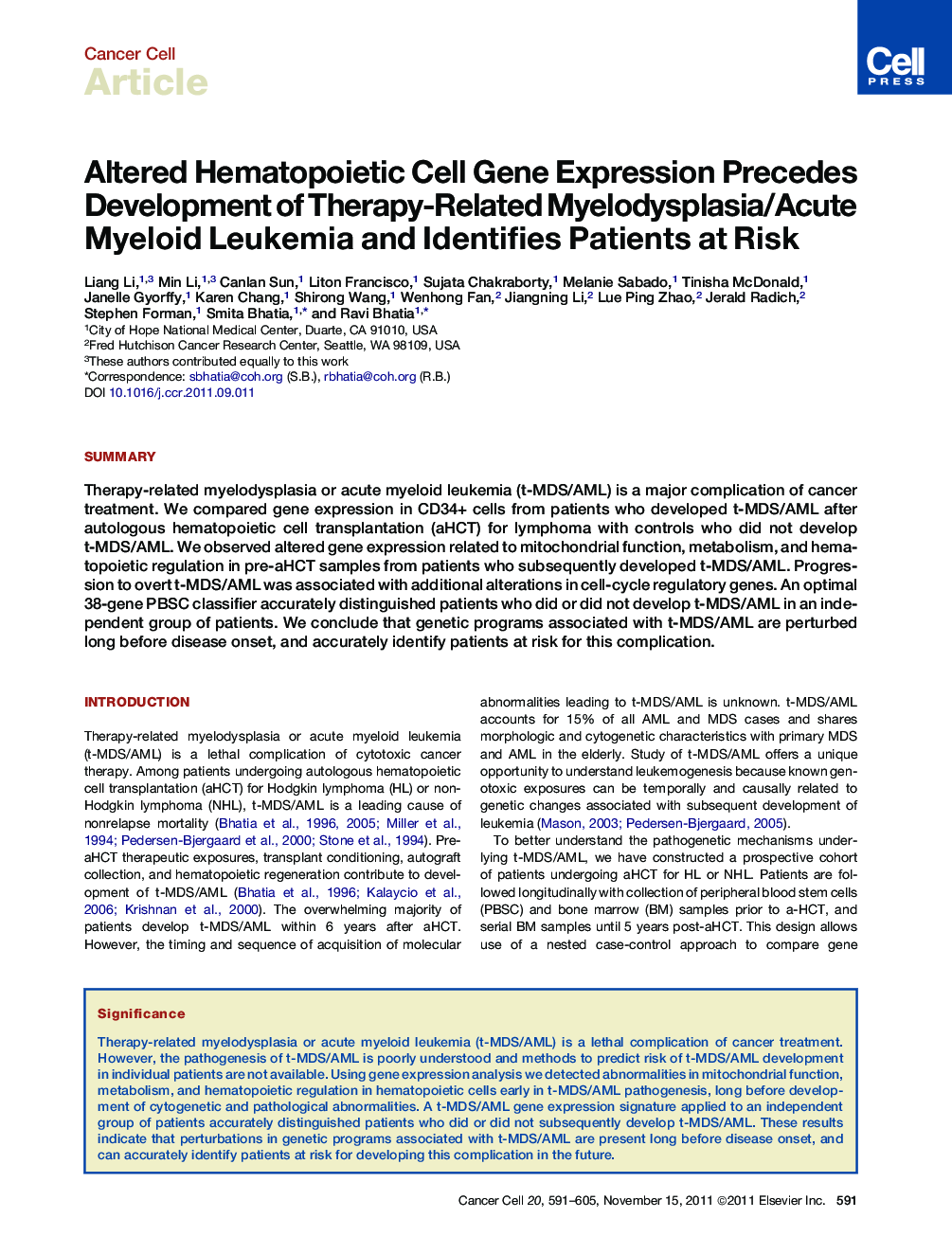| Article ID | Journal | Published Year | Pages | File Type |
|---|---|---|---|---|
| 2107374 | Cancer Cell | 2011 | 15 Pages |
SummaryTherapy-related myelodysplasia or acute myeloid leukemia (t-MDS/AML) is a major complication of cancer treatment. We compared gene expression in CD34+ cells from patients who developed t-MDS/AML after autologous hematopoietic cell transplantation (aHCT) for lymphoma with controls who did not develop t-MDS/AML. We observed altered gene expression related to mitochondrial function, metabolism, and hematopoietic regulation in pre-aHCT samples from patients who subsequently developed t-MDS/AML. Progression to overt t-MDS/AML was associated with additional alterations in cell-cycle regulatory genes. An optimal 38-gene PBSC classifier accurately distinguished patients who did or did not develop t-MDS/AML in an independent group of patients. We conclude that genetic programs associated with t-MDS/AML are perturbed long before disease onset, and accurately identify patients at risk for this complication.
Graphical AbstractFigure optionsDownload full-size imageDownload high-quality image (320 K)Download as PowerPoint slideHighlights► t-MDS/AML is a major complication of genotoxic cancer treatment ► Genetic programs associated with t-MDS/AML are perturbed long before disease onset ► Gene expression signatures accurately identify patients at high risk for t-MDS/AML ► Mitochondrial dysfunction plays an important role early in t-MDS/AML pathogenesis
